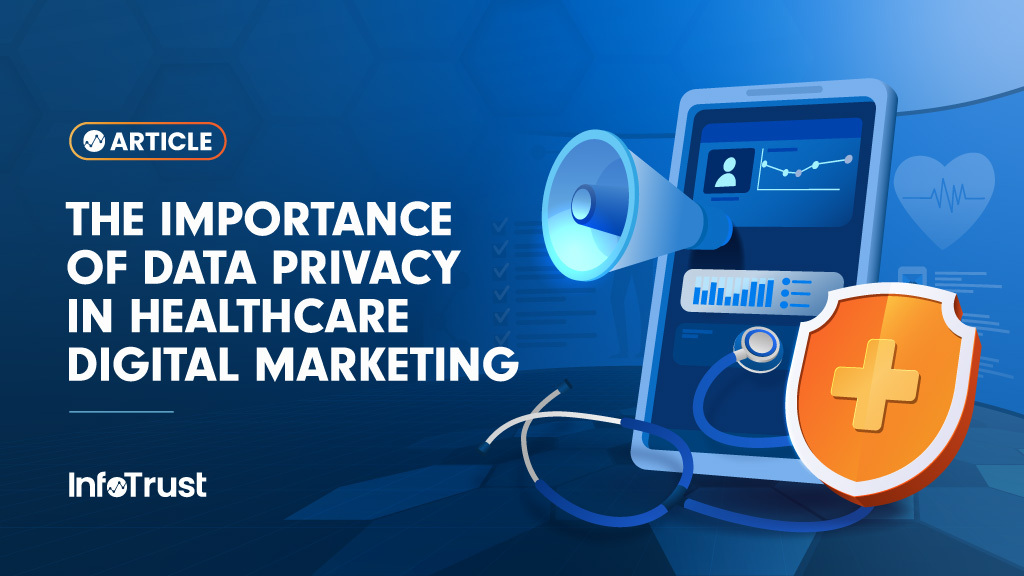In our rapidly evolving digital age, where technology is integrated into every aspect of our lives, the significance of data privacy in healthcare digital marketing cannot be overstated. As we delve into this topic, we’ll explore why safeguarding personal information in this sector is crucial, the implications of recent data breaches, and the legislative measures aimed at upholding privacy rights.
Rising Concerns Over Data Privacy: A Growing Challenge
Data privacy holds immense importance in healthcare digital marketing due to the sensitive nature of the information involved. Patients entrust healthcare providers with their most intimate details, from medical histories to treatment plans, expecting confidentiality and respect for their privacy. Any breach of this trust can have financial consequences, jeopardize the reputation of the healthcare organization, and create a substantial decrease in patient confidence.
Recent surveys indicate a significant uptick in apprehension regarding data privacy, with more than 80 percent of respondents expressing heightened levels of concern compared to just a few years ago. This surge in anxiety can be attributed to a plethora of cyberattacks, data breaches, and instances of private information misuse. In fact, a single breach exposing more than 3.5 billion records within a corporation has led 87 percent of consumers to avoid entities with poor security protocols, while 71 percent opted to discontinue business with those companies mishandling their data. Furthermore, this apprehension towards sharing data has grown, as studies reveal a reluctance among consumers to disclose personal health information, with only 46 percent willing to share data with insurance entities and 44 percent with pharmacies. This hesitancy underscores the critical need for stringent data protection measures, particularly in sensitive sectors like healthcare.
Navigating Federal and State Privacy Laws
Legislative efforts have sought to address these concerns and strengthen data privacy safeguards in the healthcare sector. One such landmark law is the Health Insurance Portability and Accountability Act (HIPAA) in the United States. HIPAA mandates strict regulations for healthcare entities, limiting the use of protected health information (PHI) to essential functions and enforcing secure storage and exchange of digital health data.
In addition to federal regulations like HIPAA, state laws such as the California Consumer Privacy Act (CCPA) and the Colorado Privacy Act impose additional requirements on healthcare organizations operating within their jurisdictions. And laws passed outside of the United States, such as GDPR in the European Union, provide strict data subject rights for personal data including health records. These laws grant patients greater control over their personal information, empowering them with rights to access, delete, and opt-out of data sharing practices.
Compliance with data privacy regulations is not just a legal obligation but also a moral imperative for healthcare organizations. By prioritizing patient privacy and adopting robust data protection measures, they can build trust and foster stronger patient-provider relationships. Moreover, respecting privacy rights can enhance the effectiveness of digital marketing efforts by demonstrating a commitment to ethical practices and responsible data stewardship.
Partnering with InfoTrust: Ensuring Compliance in Healthcare Data Collection
In conclusion, data privacy stands as a cornerstone of legal and ethical healthcare digital marketing in our interconnected world. And we at InfoTrust understand that as custodians of sensitive patient information, healthcare organizations have to safeguard patient privacy and uphold the trust placed in them. If you’re interested in learning more about how InfoTrust supports healthcare organizations in collecting patient data in a compliant way, don’t hesitate to reach out to us!
As technology continues to evolve, so too must our commitment to preserving the confidentiality and integrity of personal health information.


